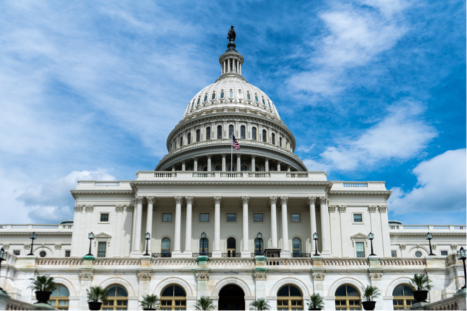As first informers, local broadcasters take seriously their commitment to bring critical updates to their listeners and viewers, even risking their own health and safety to provide a lifeline during times of crisis. Unfortunately, legislation in the House of Representatives puts this lifeline at risk by adding burdensome new fees to local radio stations.
Because of the strength of the broadcast infrastructure and the power of the airwaves, local radio and TV stations are often the only available communications medium during disasters, when cell phone and wireless networks can be unreliable.
Whether it’s an impending storm or a spreading wildfire, local radio and television stations are always there for their communities to provide breaking news alerts, round-the-clock reporting and online and social messages to keep their communities out of harm’s way.
Broadcasters continue to provide a vital community resource after the storm. From food collections, pandemic relief and voter education efforts to sharing vaccine information and hosting fundraisers and telethons, broadcasters’ tremendous dedication to helping communities sets them apart from other media. Each day, thousands of broadcasters support charities and victims of disasters, create awareness about important health and safety issues and help rescue abducted children with AMBER Alerts. And during the COVID-19 pandemic, listeners and viewers turned to their local stations not only for news but also for the human connection and reassuring voice that broadcasters provide.
Broadcasters generate more than $10 billion in community service in a single year — an astounding number that reflects the work of thousands of local stations that strive every day to help their communities in unmatched ways.
In recognition of local radio’s public service and unique role in the music licensing system, Congress has repeatedly rejected the record labels’ attempts to impose a harmful performance tax on local radio stations. A performance tax would financially cripple local radio stations simply for airing music, jeopardizing local jobs, stifling new artists and harming local radio listeners. Broadcasters strongly support the Local Radio Freedom Act (H. Con. Res. 33, S. Con. Res. 9), a resolution that opposes a performance tax and is supported by more than 230 bipartisan members of the House and Senate.
Strong congressional support for local radio was also made clear in the 2018 enactment of the Music Modernization Act, legislation that did not contain a performance tax and benefited songwriters, legacy recording artists, producers, digital streaming services and music listeners. Broadcasters stand ready to work with Congress and the music industry on a balanced music licensing proposal that promotes innovation and recognizes the benefit to artists and listeners of radio’s free, locally focused platform.
Congress should stand up for local radio station listeners by opposing a performance tax like the fee proposed by the American Music Fairness Act. This biased legislation would burden radio stations with a new fee without considering radio’s unique role in the holistic music licensing ecosystem.
Learn more about broadcasters’ unparalleled work and NAB’s mission to support it at the Broadcasters’ Policy Agenda.




